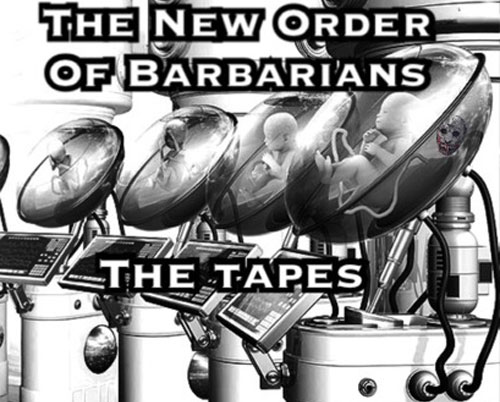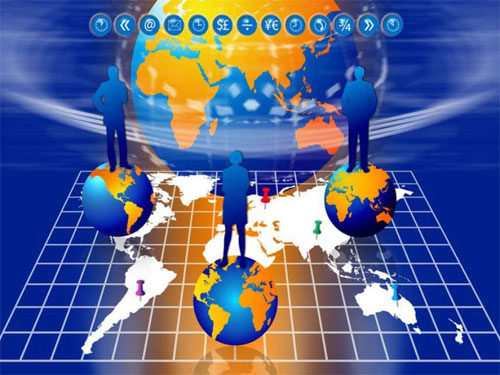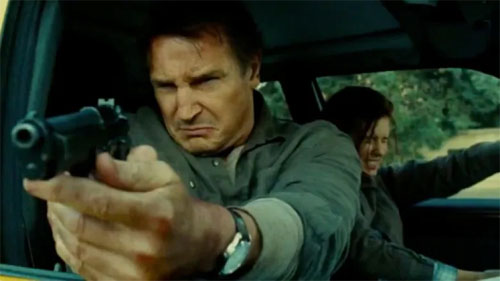Illuminati insider in 1969: ‘travel will become very restricted’. ‘The New Order Of Barbarians’ (4)
This is a transcript of the second of three tapes on the “New Order of Barbarians”, referred to on the tapes simply as the “new world system.” Tapes one and two, done in 1988, are the reminiscences of Dr. Lawrence Dunegan, a pediatrician from Pittsburgh, who sat through a talk in 1969, while insider, Dr. Richard Day, spoke of the planned future of America and Americans. Day was speaking to a group of Pediatric Physicians who were told, “No note-taking and no tape recorders.”

Read the transcript of the Tape 1
Change
…. Change, nothing is permanent. Streets would be rerouted, renamed. Areas you had not seen in a while would become unfamiliar. Among other things, this would contribute to older people feeling that it was time to move on, they feel they couldn’t even keep up with the changes in areas that were once familiar. Buildings would be allowed to stand empty and deteriorate, and streets would be allowed to deteriorate in certain localities. The purpose of this was to provide the jungle, the depressed atmosphere for the unfit. Somewhere in this same connection he mentioned that buildings and bridges would be made so that they would collapse after a while; there would be more accidents involving airplanes and railroads and automobiles. All of this to contribute to the feeling of insecurity, that nothing was safe.
Not too long after this presentation, and I think one or two even before in the area where I live, we had some newly constructed bridge to break; another newly constructed bridge defect discovered before it broke, and I remember reading just scattered incidents around the country where shopping malls would fall in – right where they were filled with shoppers. And I remember that one of the shopping malls in our area, the first building I’d ever been in where you could feel this vibration throughout the entire building when there were a lot of people in there; and I remember wondering at that time whether this shopping mall was one of the buildings he was talking about. Talking to construction people and architects about it they would say, “Oh no, that’s good when the building vibrates like that. That means it’s flexible, not rigid.” Well… maybe so. We’ll wait and see.
Other areas there would be well-maintained. Not every part of the city would be slums. There would be the created slums and other areas well-maintained. Those people able to leave the slums for better areas then would learn to better appreciate the importance of human accomplishment. This meant that if they left the jungle and came to civilization, so to speak, they could be proud of their own accomplishments that they made it. There was no related sympathy for those who were left behind in the jungle of drugs and deteriorating neighborhoods. Then a statement that was kind of surprising: “We think we can effectively limit crime to the slum areas, so it won’t be spread heavily into better areas.”
Consolidating policy
I should maybe point out here that these are obviously not word for word quotations after 20 years, but where I say that I am quoting, I am giving the general drift of what was said close to word for word; perhaps not precisely so. But anyhow, I remember wondering, “How can he be so confident that the criminal element is going to stay where he wants it to stay?” But he went on to say that increased security would be needed in the better areas.
That would mean more police, better coordinated police efforts. He did not say so, but I wondered at that time about the moves that were afoot to consolidate all the police departments of suburbs around the major cities. I think the John Birch Society was one that was saying, “Support your local police; don’t let them be consolidated.” And I remember wondering if that was one of the things he had in mind about security.
It was not explicitly stated. But anyhow, he went on to say there would be a whole new industry of residential security systems to develop with alarms and locks and alarms going into the police department so that people could protect their wealth and their well being. Because some of the criminal activity would spill out of the slums into better, more affluent looking areas that looked like they would be worth burglarizing. And again it was stated like it was a redeeming quality. “See, we’re generating all this more crime, but look how good we are – we’re also generating the means for you to protect yourself against the crime.” A sort of repeated thing throughout this presentation was the recognized evil and then the self-forgiveness thing…”Well see, we’ve given you a way out.”
Global interdependence “to create a new structure, you first have to tear down the old”
American industry came under discussion – it was the first that I’d heard the term GLOBAL INTERDEPENDENCE or that notion. The stated plan was that different parts of the world would be assigned different roles of industry and commerce in a unified global system. The continued pre-eminence of the United States and the relative independence and self-sufficiency of the United States would have to be changed. This was one of the several times that he said “in order to create a new structure, you first have to tear down the old, and American industry was one example of that”. Our system would have to be curtailed in order to give other countries a chance to build their industries, because otherwise they would not be able to compete against the United States. And this was especially true of our heavy industries that would be cut back while the same industries were being developed in other countries, notably Japan.

Patriotism would go down the drain
And at this point there was some discussion of steel and particularly automobiles. I remember him saying that automobiles would be imported from Japan on an equal footing with our own domestically produced automobiles, but the Japanese product would be better. Things would be made so they would break and fall apart – that is, in the United States – so that people would tend to prefer the imported variety and this would give a bit of a boost to foreign competitors. One example, was Japanese. In 1969, Japanese automobiles – if they were sold here at all, I don’t remember – but they certainly weren’t very popular.
But the idea was, you could get a little bit disgusted with your Ford, GM, or Chrysler product – or whatever – because little things like window handles would fall off more, and plastic parts would break which, had they been made of metal, would hold up. Your patriotism about buying American would soon give way to practicality that if you bought Japanese, German, or imported that it would last longer and you would be better off. Patriotism would go down the drain then.
It was mentioned elsewhere, things being made to fall apart too. I don’t remember specific items or if they were even stated other than automobiles, but I do recall of having the impression, sort of in my imagination, of a surgeon having something fall apart in his hands in the operating room, at a critical time. Was he including this sort of thing in his discussion? But somewhere in this discussion about things being made deliberately defective and unreliable not only was to tear down patriotism but to be just a little source of irritation to people who would use such things.
Loss of jobs – loss of security
Again, the idea that you not feel terribly secure, promoting the notion that the world isn’t a terribly reliable place. The United States was to be kept strong in information, communications, high technology, education and agriculture. The United States was seen as continuing to be sort of the keystone of this global system.
But heavy industry would be transported out. One of the comments made about heavy industry was that we had had enough environmental damage from smokestacks and industrial waste and some of the other people could put up with that for a while. This again, was supposed to be a “redeeming quality” for Americans to accept. You took away our industry but you saved our environment. So we really didn’t lose on it.
[ASIDE] Population shifts to eliminate “traditions”
And along this line there were talks about people losing their jobs as a result of industry and opportunities for retraining, and particularly population shifts would be brought about. This is sort of an aside. I think I’ll explore the aside before I forget it. Population shifts were to be brought about so that people would be tending to move into the Sun Belt. They would be, sort of, people without roots in their new locations, and traditions are easier to change in a place where there are a lot of transplanted people, as compared to trying to changing traditions in a place where people grew up and had an extended family – where they had roots. Things like new medical care systems. If you pick up from a Northeast industrial city and you transplant yourself to the South Sun Belt or Southwest, you’ll be more accepting of whatever kind of, for example, controlled medical care you find there than you would accept a change in the medical care system where you had roots and the support of your family. Also in this vein it was mentioned – he used the plural personal pronoun “we” –” we take control first of the port cities… New York, San Francisco, Seattle…”, the idea being that this is a piece of strategy. The idea being that if you control the port cities with your philosophy and your way of life, the HEARTLAND in between has to yield.
I can’t elaborate more on that but it is interesting, if you look around the most liberal areas of the country – and progressively so – are the seacoast cities; the heartland, the Midwest, does seem to have maintained its conservatism. But as you take away industry and jobs and relocate people then this is a strategy to break down conservatism. When you take away industry, and people are unemployed and poor they will accept whatever change seems to offer them survival; and their morals and their commitment to things will all give way to survival. That’s not my philosophy. That’s the speaker’s philosophy.
World citizens – world sports
Anyhow, going back to industry. Some heavy industry would remain. Just enough to maintain a sort of a seedbed of industrial skills which could be expanded if the plan didn’t work out as it was intended. So the country would not be devoid of assets and skills. But this was just sort of a contingency plan. It was hoped and expected that the worldwide specialization would be carried on.

But, perhaps repeating myself, one of the upshots of all of this is that with this global interdependence then national identities would tend to be de-emphasized. Each area depended on every other area for one or another elements in its life. We would all become citizens of the world rather than citizens of any one country.
And along these lines then we can talk about sports. Sports in the United States was to be changed, in part as a way of de-emphasizing nationalism. Soccer, a world-wide sport, was to be emphasized and pushed in the United States and this was of interest because in this area the game of soccer was virtually unknown at that time. I had a few friends who attended an elementary school other than the one I attended where they played soccer at their school, and they were a real novelty. This was back in the 50’s. So to hear this man speak of soccer in this area was kind of surprising.
Anyhow, soccer is seen as an international sport and would be promoted and the traditional sport of American baseball would be de-emphasized and possibly eliminated because it might be seen as too American. And he discussed eliminating this. One’s first reaction would be “well, they pay the players poorly and they don’t want to play for poor pay so they give up baseball and either go into some other sport or some other activity”. But, he said that’s really not how it works. Actually, the way to break down baseball would be to make the salaries go very high.
The idea behind this was that as the salaries got ridiculously high there would be a certain amount of discontent and antagonism as people resented the athletes being paid so much, and the athletes would begin more and more to resent among themselves what other players were paid and would tend to abandon the sport. And these high salaries then also could break the owners and alienate the fans. And then the fans would support soccer and the baseball fields could be used as soccer fields. It wasn’t said definitely this would have to happen, but if the international flavor didn’t come around rapidly enough this could be done.
There was some comment along the same lines about football, although I seem to recall he said football would be harder to dismantle because it was so widely played in colleges as well as in the professional leagues and would be harder to tear down. There was something else also about the violence in football that met a psychological need that was perceived, and people have a need for this vicarious violence. So football, for that reason, might be left around to meet that vicarious need.
The same thing is true of hockey. Hockey had more of an international flavor and would be emphasized. There was some foreseeable international competition about hockey and particularly soccer. At that time hockey was international between the United States and Canada. I was kind of surprised because I thought the speaker just never impressed me as being at all a hockey fan, and I am. And it turns out, he was not. He just knew about the game and what it would do to this changing sports program.
But in any event soccer was to be the keystone of athletics because it is already a world-wide sport in South America, in Europe, in parts of Asia and the United States should get on the bandwagon. All this would foster international competition so that we would all become citizens of the world to a greater extent than citizens of our narrow nations.
Hunting
There was some discussion about hunting, not surprisingly. Hunting requires guns and gun control is a big element in these plans. I don’t remember the details much, but the idea is that gun ownership is a privilege and not everybody should have guns. Hunting was an inadequate excuse for owning guns and everybody should be restricted in gun ownership. The few privileged people who should be allowed to hunt could maybe rent or borrow a gun from official quarters rather than own their own. After all, everybody doesn’t have a need for a gun, is the way it was put.
Sports for girls – to de-emphasize femininity
Very important in sports was sports for girls. Athletics would be pushed for girls. This was intended to replace dolls. Baby dolls would still be around, a few of them, but you would not see the number and variety of dolls. Dolls would not be pushed because girls should not be thinking about babies and reproduction. Girls should be out on the athletic field just as the boys are. Girls and boys really need not to be all that different. Tea sets were to go the way of dolls, and all these things that traditionally were thought of as feminine would be de-emphasized as girls got into more masculine pursuits.
Just one other thing I recall was that the sports pages would be full of the scores of girls teams just right along there with the boys teams. And that’s recently begun to appear after 20 years in our local papers. The girls sports scores are right along with the boys sports scores. So all of this to change the role model of what young girls should look to be. While she’s growing up she should look to be an athlete rather to look forward to being a mother.
Entertainment: violence, sex and more sex desensitization – preparing the people for “human casualties”

Movies would gradually be made more explicit as regards sex and language. After all, sex and rough language are real and why pretend that they are not? There would be pornographic movies in the theaters, on television. And VCR’s were not around at that time, but he had indicated that these cassettes would be available, and video cassette players would be available for use in the home and pornographic movies would be available for use on these VCRs as well as in the neighborhood theater and on your television. He said something like, “You’ll see people in the movies doing everything you can think of.”
He went on to say that… and all of this is intended to bring sex out in the open. That was another comment that was made several times – the term “sex out in the open.” Violence would be made more graphic. This was intended to desensitize people to violence. There might need to be a time when people would witness real violence and be a part of it. Later on it will become clear where this is headed. So there would be more realistic violence in entertainment which would make it easier for people to adjust.
People’s attitudes towards death would change and they would not be so fearful of it but more accepting of it, and not be so aghast at the sight of dead people or injured people. We don’t need to have a genteel population paralyzed by what they might see. People would just learn to say, “well, I don’t want that to happen to me.”
This was the first statement suggesting that the plan includes numerous human casualties which the survivors would see. This particular aspect of the presentation came back in my memory very sharply a few years later when a movie about the Lone Ranger came out and I took my very young son to see it and early in the movie were some very violent scenes. One of the victims was shot in the forehead and there was sort of a splat where the bullet entered his forehead and blood and I remember regretting that I took my son, and remember feeling anger toward the doctor who spoke. Not that he made the movie, but he agreed to be part of this movement, and I was repelled by the movie and it brought back this aspect of his presentation very sharply in my memory.
“Music will get worse”
As regards music, he made a rather straightforward statement like, “Music will get worse.” In 1969, Rock music was getting more and more unpleasant. It was interesting just his words the way he expressed it. It would “get worse”… acknowledging that it was already bad. Lyrics would become more openly sexual. No new sugary romantic music would be publicized like that which had been written before that time.
All of the old music would be brought back on certain radio stations and records for older people to here. And all the folks would have sort of their own radio stations to hear. Younger people, as it got worse and worse, he seemed to indicate that one group would not hear the other group’s music. Older folks would just refuse to hear the junk that was offered to young people, and the young people would accept the junk because it identified them as their generation and helped them feel distinct from the older generation.
I remember at the time thinking that would not last very long because even young kids wouldn’t like the junk when they got a chance to hear the older music that was prettier they would gravitate toward it. Unfortunately, I was wrong about that, when the kids get through their teens and into their 20’s some of them improve their taste in music, but unfortunately he was right. They get used to this junk and that’s all they want. A lot of them can’t stand really pretty music. He went on to say that the music would carry a message to the young and nobody would even know the message was there. They would just think it was loud music. At the time, I didn’t understand quite what he meant by that, but in retrospect, I think we know now what the messages are in the music for the young.
Give us the young
And again, he was right. This aspect was sort of summarized with the notion that entertainment would be a tool to influence young people. It won’t change the older people, they are already set in their ways, but the changes would be all aimed at the young, who are in their formative years, and the older generation would be passing. Not only could you not change them, but they are relatively unimportant, anyhow. Once they live out their lives and are gone, the younger generation being formed, are the ones that would be important for the future in the 21st century.
He also indicated all the old movies would be brought back again, and I remember on hearing that through my mind ran quickly the memories of a number of old movies. I wondered if they would be included, the ones that I thought I would like to see again.
Along with bringing back old music and old movies for older people there were other privileges that would also be accorded older folks: free transportation, breaks on purchases, discounts, tax discounts – a number of privileges just because they were older. This was stated to be sort of a reward for the generation which had grown up through the depression and had survived the rigors of World War II. They had deserved it, and they were going to be rewarded with all these goodies, and the bringing back of the good old music and the good old movies was going to help ease them through their final years in comfort.
’80s and ’90s – the grim reaper. Travel restrictions – national id – the chip, etc.

Then, the presentation began to get rather grim, because once that generation passed, and that would be in the late 80’s and early 90’s where we are now, most of that [age] group would be gone and then, gradually, things would tighten up and the tightening up would be accelerated. The old movies and old songs would be withdrawn; the gentler entertainment would be withdrawn. Travel, instead of being easy for old folks… travel then would become very restricted. People would need permission to travel and they would need a good reason to travel. If you didn’t have a good reason for your travel you would not be allowed to travel, and everyone would need ID.
This would at first be an ID card you would carry on your person and you must show when you are asked for it. It was already planned that later on some sort of device would be developed to be implanted under the skin that would be coded specifically to identify the individual. This would eliminate the possibility of false ID and also eliminate the possibility of people saying, “Well, I lost my ID.”
The difficulty about these skin-implanted ID was stated to be getting material that would stay in or under the skin without causing foreign body reaction whereby the body would reject it or cause infection, and that this would have to be material on which information could be recorded and retrieved by some sort of scanner while it was not rejected by the body.
Silicon was mentioned. Silicon at that time was thought to be well tolerated. It was used to augment breasts. Women who felt their breasts were too small would get silicon implants, and I guess that still goes on. At any rate silicon was seen at that time as the promising material to do both… to be retained in the body without rejection and to be able to retain information retrievable by electronic means.
Food control
Food supplies would come under tight control. If population growth didn’t slow down, food shortages could be created in a hurry and people would realize the dangers of overpopulation. Ultimately, whether the population slows down or not the food supply is to be brought under centralized control so that people would have enough to be well-nourished but they would not have enough to support any fugitive from the new system. In other words, if you had a friend or relative who didn’t sign on [side one ends abruptly continue on side two]
And growing ones own food would be outlawed. This would be done under some sort of pretext. In the beginning, I mentioned there were two purposes for everything – one the ostensible purpose and one the real purpose – and the ostensible purpose here would be that growing your own vegetables was unsafe, it would spread disease or something like that. So the acceptable idea was to protect the consumer but the real idea was to limit the food supply and growing your own food would be illegal. And if you persist in illegal activities like growing your own food, then you’re a criminal.
Read the fifth part of the article
yogaesoteric
November 27, 2020
